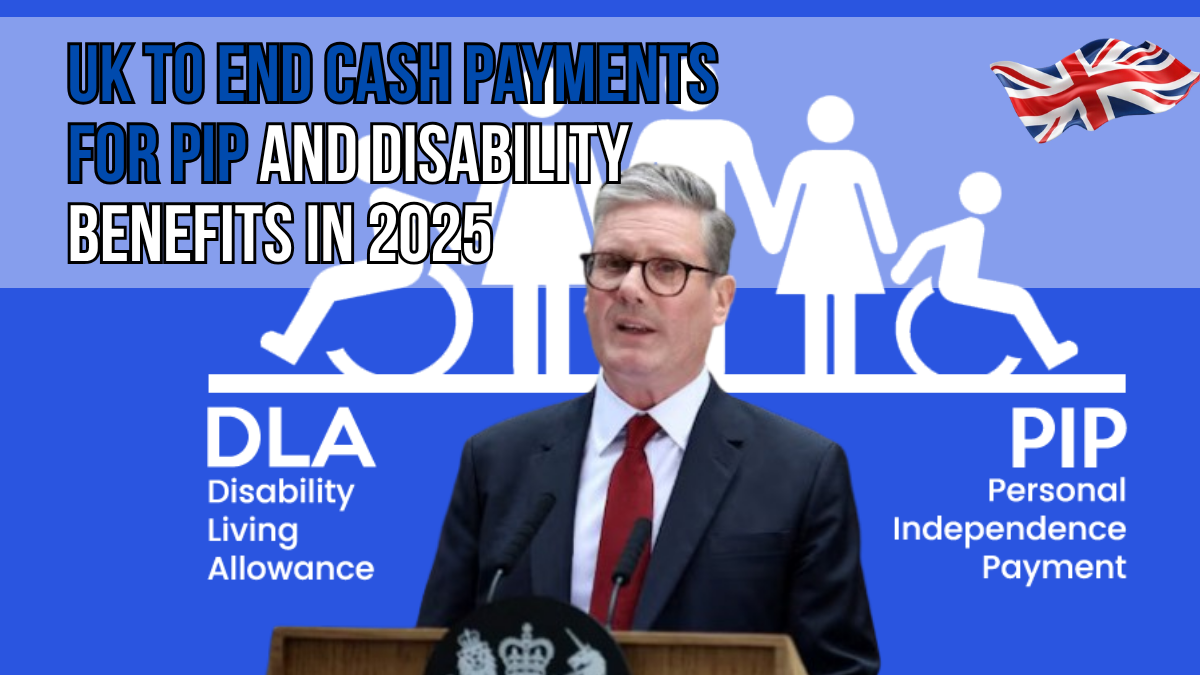The UK government has officially abandoned plans to replace Personal Independence Payment (PIP) cash benefits with vouchers or non-cash alternatives. This decision, announced in April 2025, comes after widespread opposition from disability rights groups and concerns about the potential impact on beneficiaries. However, significant reforms to the PIP system are still on the horizon, aiming to tighten eligibility criteria and reshape the assessment process.

Summary Table: UK Government Scraps PIP Cash Payment Replacement Plan
| Aspect | Details |
|---|---|
| Voucher Proposal | Initially proposed by the previous government; officially scrapped in April 2025 by the Labour administration. |
| Eligibility Reforms | From November 2026, new claimants must score at least four points in one activity to qualify for the daily living component of PIP. |
| Assessment Changes | The Work Capability Assessment will be abolished from 2028; PIP assessments will determine eligibility for additional support. |
| Face-to-Face Assessments | Increase in face-to-face assessments for higher disability benefits; aim to reduce reliance on paper-based evaluations. |
| Reassessments | Individuals with the most severe disabilities will no longer undergo regular reassessments. |
| Financial Impact | Up to 1.2 million people could lose between £4,200 and £6,300 annually by 2029 due to the proposed changes. |
| Official Source | Department for Work and Pensions (DWP) |
Understanding the Scrapped Voucher Proposal
The initial proposal aimed to replace regular PIP cash payments with alternative support mechanisms, such as:
- Pre-paid cards for specific disability-related purchases.
- One-off grants for equipment or home modifications.
- Reimbursement schemes based on submitted receipts.
This approach faced criticism for potentially limiting the autonomy of disabled individuals and adding bureaucratic hurdles. In response to the backlash, Work and Pensions Secretary Liz Kendall stated:
“This Government will not bring in the Tory proposals for vouchers — because disabled people should have choice and control over their lives.”
Upcoming Reforms to PIP
Despite the cancellation of the voucher system, the government is proceeding with substantial changes to the PIP framework:
1. Tightened Eligibility Criteria
Starting November 2026, new applicants must score a minimum of four points in at least one activity to qualify for the daily living component of PIP. This change is expected to reduce the number of eligible claimants, particularly those with less severe disabilities.
2. Abolition of the Work Capability Assessment
By 2028, the Work Capability Assessment (WCA) will be discontinued. Eligibility for additional support will be determined solely through PIP assessments, streamlining the process and focusing on the impact of disabilities on daily living.
3. Increased Face-to-Face Assessments
The government plans to increase the frequency of face-to-face assessments for higher disability benefits to ensure accurate evaluations and reduce reliance on paper-based assessments.
4. Elimination of Reassessments for Severe Disabilities
Individuals with the most severe and lifelong disabilities will no longer be subject to regular reassessments, alleviating stress and administrative burdens.
Financial Implications
The proposed reforms could have significant financial consequences for many recipients:
- An estimated 1.2 million people may lose between £4,200 and £6,300 annually by 2029 due to tightened eligibility and assessment changes.
- The government argues that these measures are necessary to ensure the sustainability of the benefits system and encourage those who can work to return to employment.
Official Resources
For more information and updates on PIP and related benefits, visit the official Department for Work and Pensions website:
Department for Work and Pensions (DWP)
Frequently Asked Questions (FAQs)
Q1: Is the PIP voucher system still being implemented?
A: No. The proposal to replace PIP cash payments with vouchers was officially scrapped in April 2025 by the Labour government.
Q2: What changes are being made to PIP eligibility?
A: From November 2026, new claimants must score at least four points in one activity to qualify for the daily living component of PIP.
Q3: Will existing PIP recipients be affected by the new eligibility criteria?
A: Initially, the changes will apply to new claimants. However, existing recipients may be reassessed under the new criteria over time.
Q4: What is replacing the Work Capability Assessment?
A: The Work Capability Assessment will be abolished by 2028. Eligibility for additional support will be determined through PIP assessments.
Q5: How will the reforms impact individuals with severe disabilities?
A: Individuals with the most severe and lifelong disabilities will no longer undergo regular reassessments, reducing stress and administrative burdens.
Conclusion
While the abandonment of the voucher system maintains the autonomy of PIP recipients, the forthcoming reforms signify a substantial shift in the UK’s approach to disability benefits. Tightened eligibility criteria and changes to assessment processes aim to ensure the system’s sustainability but may also result in reduced support for many individuals. Staying informed and engaged with official resources is crucial for current and prospective PIP recipients navigating these changes.
Click here to know more



